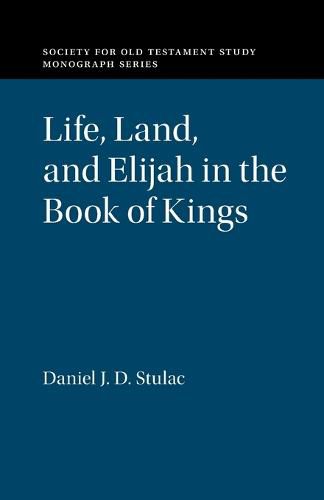Readings Newsletter
Become a Readings Member to make your shopping experience even easier.
Sign in or sign up for free!
You’re not far away from qualifying for FREE standard shipping within Australia
You’ve qualified for FREE standard shipping within Australia
The cart is loading…






In this book, Daniel J. D. Stulac brings a canonical-agrarian approach to the Elijah narratives and demonstrates the rhetorical and theological contribution of these texts to the Book of Kings. This unique perspective yields insights into Elijah's iconographical character (1 Kings 17-19), which is contrasted sharply against the Omride dynasty (1 Kings 20-2 Kings 1). It also serves as a template for Elisha's activities in chapters to follow (2 Kings 2-8). Under circumstances that foreshadow the removal of both monarchy and temple, the book's middle third (1 Kings 17-2 Kings 8) proclaims Yhwh's enduring care for Israel's land and people through various portraits of resurrection, even in a world where Israel's sacred institutions have been stripped away. Elijah emerges as the archetypal ancestor of a royal-prophetic remnant with which the reader is encouraged to identify.
$9.00 standard shipping within Australia
FREE standard shipping within Australia for orders over $100.00
Express & International shipping calculated at checkout
In this book, Daniel J. D. Stulac brings a canonical-agrarian approach to the Elijah narratives and demonstrates the rhetorical and theological contribution of these texts to the Book of Kings. This unique perspective yields insights into Elijah's iconographical character (1 Kings 17-19), which is contrasted sharply against the Omride dynasty (1 Kings 20-2 Kings 1). It also serves as a template for Elisha's activities in chapters to follow (2 Kings 2-8). Under circumstances that foreshadow the removal of both monarchy and temple, the book's middle third (1 Kings 17-2 Kings 8) proclaims Yhwh's enduring care for Israel's land and people through various portraits of resurrection, even in a world where Israel's sacred institutions have been stripped away. Elijah emerges as the archetypal ancestor of a royal-prophetic remnant with which the reader is encouraged to identify.